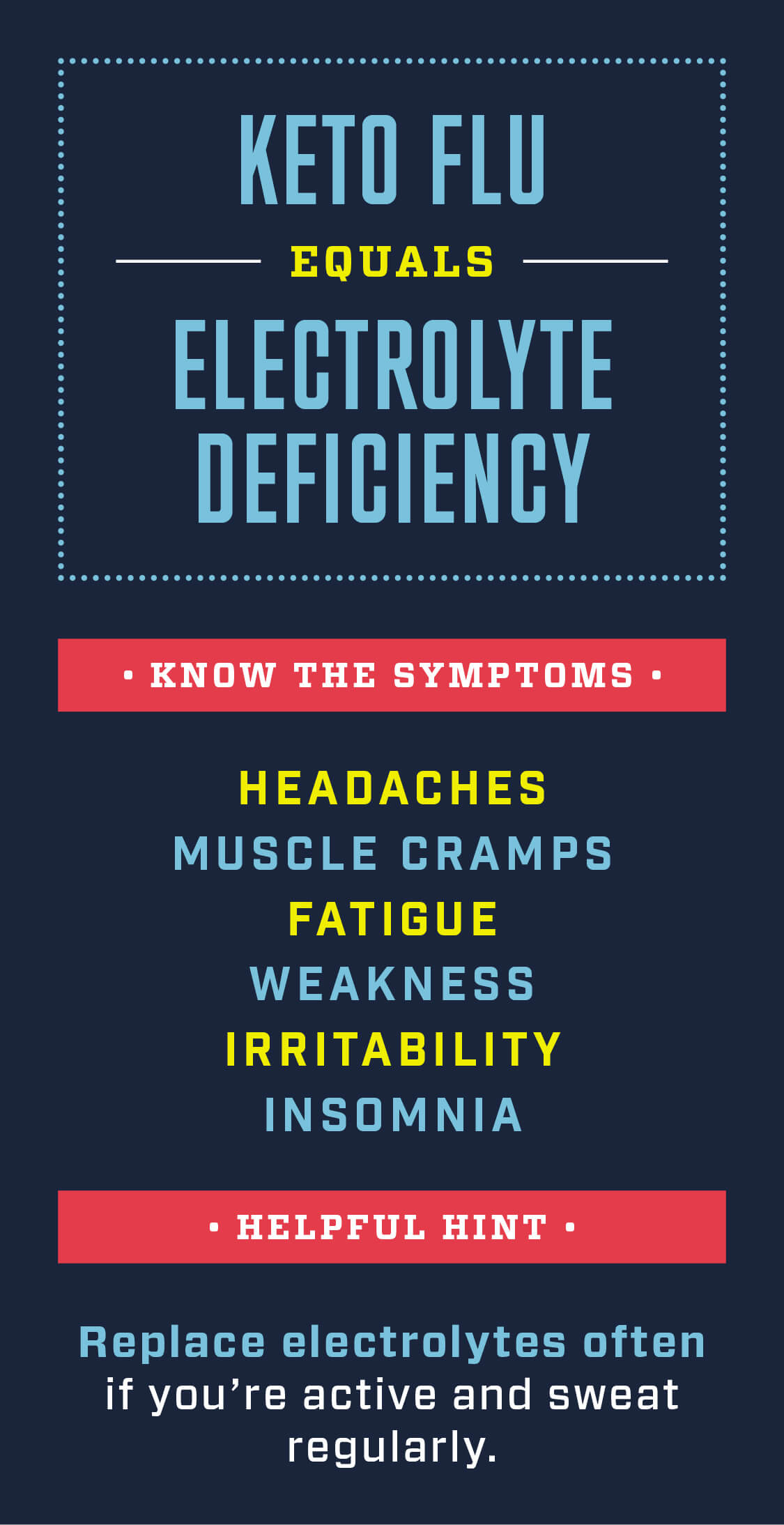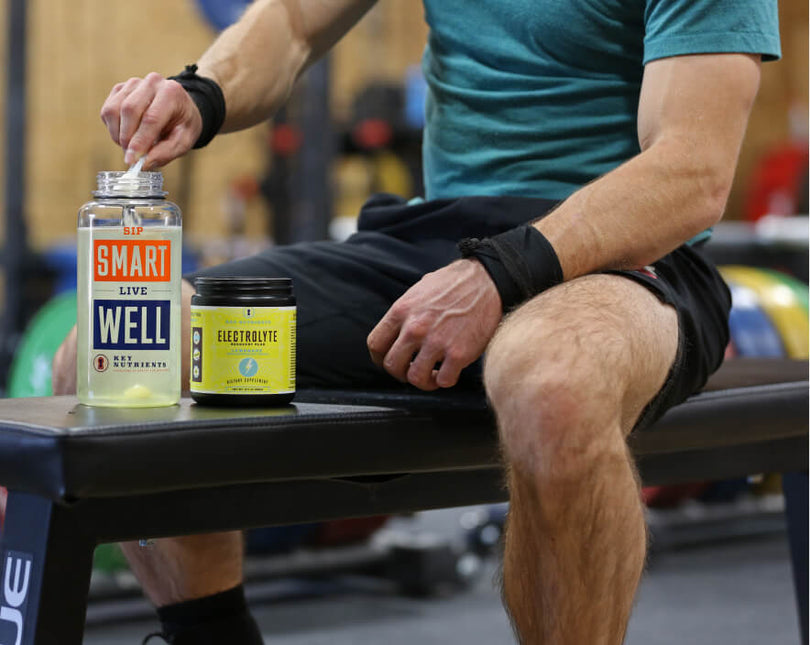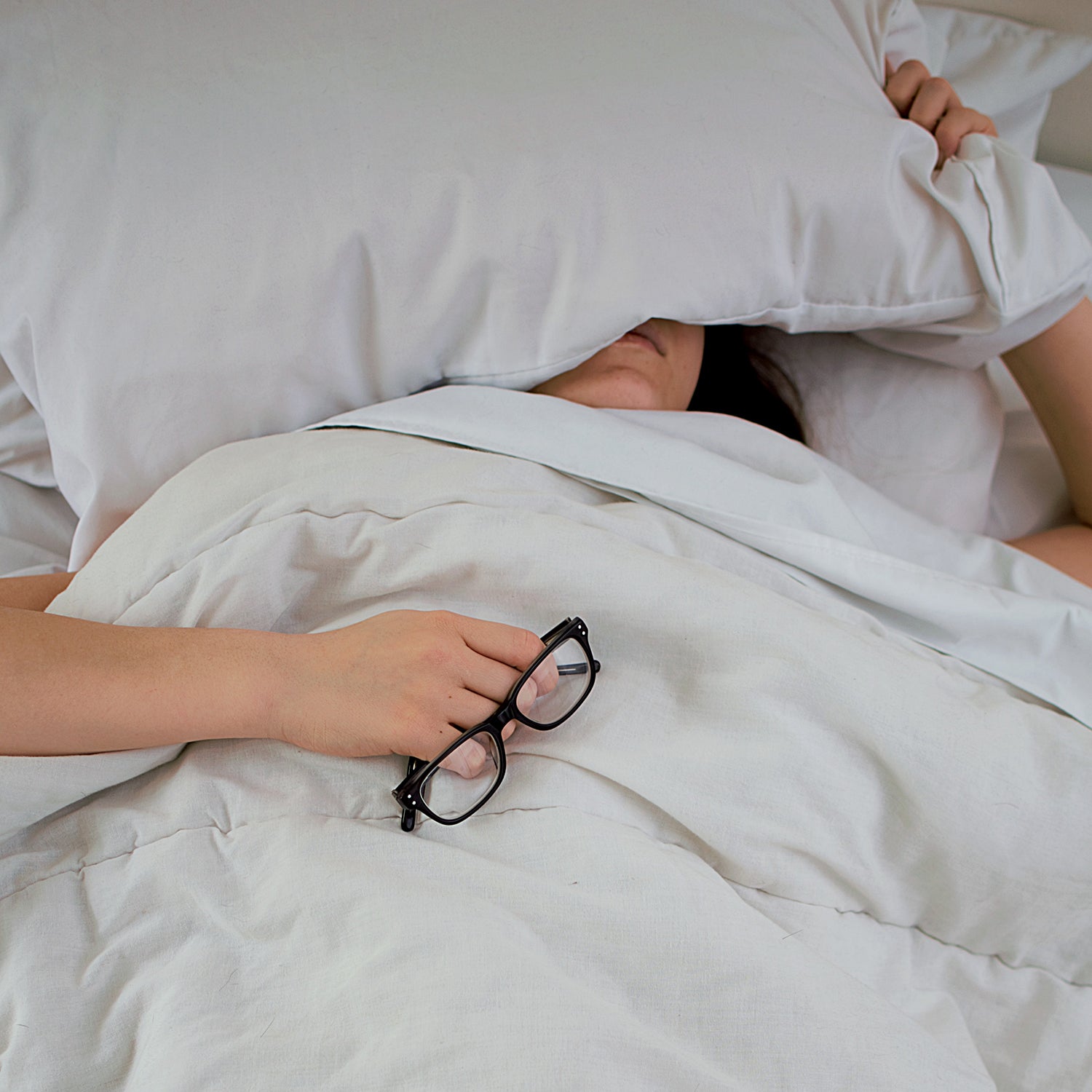Medically Reviewed by Dr. Bryan Seigel D.C., P.L.C.
Many people think that going keto entails a brutal transition. You have no choice, apparently. You simply have to feel weak, fatigued, and crampy for several weeks.
These symptoms wear on you as you wait for the fat loss, craving control, and mental clarity of ketosis. Just a few more days on this keto diet, you tell yourself. That’s it.
Maybe you think about quitting. That’s understandable. Why stick with something if you’re feeling lousy?
But if you’re not feeling your best on a keto diet, there could be a simple solution. You might need more electrolytes.

What Are Electrolytes?
Electrolytes are minerals that conduct electrical charges in your body. They keep nerve impulses firing, blood flowing, and your brain floating happily in your skull.
The main electrolytes are sodium, chloride, potassium, magnesium, calcium, bicarbonate, and phosphorus. These electrolytes have jobs, you’ll want to know, that go beyond electricity conduction.
Important Electrolyte Jobs
- Sodium and chloride regulate fluid balance, or the amount of water in your blood and tissues[*]. These electrolytes almost always appear together as salt.
- Potassium supports healthy blood pressure by balancing the effects of sodium[*].
- Magnesium facilitates bone building, DNA synthesis, muscle contraction, and much more[*].
- Calcium sometimes functions as an electrolyte, but mostly supports the development of hard tissue, like teeth and bones[*].
- Phosphorus, or phosphate, structures DNA, bones, and even the energy currency of the human body, ATP[*].
You gain electrolytes through diet and supplementation. If you don’t get enough electrolytes from these sources, you run the risk of electrolyte deficiency, which is undesirable on multiple levels. If you’re calcium deficient, for instance, your body breaks down bone to meet those needs[*]. Deficiencies can also result in a range of symptoms, but we’ll cover that later.
You lose electrolytes through sweat, urine, and feces. Through urine, your kidneys calibrate your electrolyte levels. If sodium levels get too high, your pee gets salty as you dispose of the excess. If sodium levels fall, your kidneys retain more sodium.
This calibration system, however, is affected by your diet.
Why You Need More Electrolytes on Keto
There are two main reasons keto folks need to consume more electrolytes:
- They lose more electrolytes through urine[*].
- They consume fewer electrolytes through diet.
These points deserve more explanation.

#1: Urinary Electrolyte Loss
The golden rule of the keto diet is to limit carbohydrate intake to around 10% of total calories. Keeping carbs low triggers a series of metabolic changes that results in fat-burning and ketone production in the liver. In other words, keeping carbs low results in ketosis[*].
The hormone lording over this process is insulin. After you eat a meal, your pancreas secretes insulin to safely store excess blood sugar as either glycogen (stored glucose) or body fat. Insulin is a fat-storage hormone.
But since keto diets keep carbs low, blood sugar and insulin levels stay low too. This means body fat gets burned rather than stored. Low insulin is the key to ketosis.
That’s common knowledge. Less common is the knowledge that low insulin impacts electrolyte status. Specifically, low insulin signals your kidneys to dump more electrolytes like sodium and potassium through urine[*].
Add this quirk of physiology to reason #2 and you have a recipe for electrolyte deficiency.

#2: An Electrolyte Poor Diet
Fruits and starchy vegetables are among the world’s best electrolyte sources. Unfortunately, these electrolyte-rich foods are largely disallowed on a low-carb ketogenic diet.
Because of this, many people fall short on electrolyte requirements. It’s tough to hit the RDA of 4.7 grams of potassium when you can’t eat yams, potatoes, sweet potatoes, or bananas[*].
Magnesium can be a challenge too. If you aren’t devouring several servings of green leafy vegetables per day, you probably aren’t getting the 600 mg of magnesium that our ancestors evolved to thrive upon[*].
What about calcium? Dairy is the most common source, but softened bones and cruciferous vegetables are also rich in this essential mineral. Unless you’re eating plenty of these food groups, you may fall short of the recommended one gram per day[*].
Sodium is the last electrolyte we’ll hit on. When folks go keto, they drop the main source of sodium in their diets: Packaged foods. Limiting these pseudo-foods is obviously a good thing, but it means that the salt shaker needs to do extra work to prevent sodium deficiency.

Keto Flu = Electrolyte Deficiency
If you don’t get enough electrolytes on keto, you’re not going to feel your best. You may experience headaches, muscle cramps, fatigue, weakness, irritability, and even insomnia.
These symptoms of low electrolytes are often labeled “keto flu”. And while keto flu isn’t always a case of electrolyte deficiency, it makes sense to address electrolytes first[*]. It’s an easy fix.
Another potential cause of keto flu involves the brain switching from glucose to ketones for energy[*]. But researchers believe this transition only lasts a few days, so if you’re dragging after weeks of low-carb dieting, it’s probably not a transition problem.
It’s probably an electrolyte problem. The symptoms of sodium, potassium, and magnesium deficiency are eerily similar to what folks call keto flu. Just look at long-distance athletes who suffer from dangerously low sodium levels, or hyponatremia[*]. They arrive at the finish line confused, weak, moody, and cramped up.
This suggests another guideline. If you’re regularly sweating while living a keto lifestyle, you need to replace electrolytes like they replace tennis balls at the US Open. Do it every chance you get.

Getting Enough Electrolytes On Keto
If you want to feel and perform your best on a low-carb diet, you need to get your electrolytes handled. Handling your keto electrolytes is a two-pronged approach, involving both diet and supplementation.
When it comes to diet, there are many keto-friendly foods rich in electrolytes. For instance, you can eat:
- Green leafy vegetables like spinach and kale for magnesium and potassium
- Meat and fish for potassium and phosphorus
- Cruciferous vegetables, dairy, and sardines for calcium
What about sodium and chloride? Most whole foods are relatively low in salt, so make sure you salt your food.
Supplementation is the other pillar. When choosing a keto electrolyte supplement, make sure it doesn’t have sugar (sugar raises insulin and kicks you out of ketosis) and does have potassium, sodium, chloride, magnesium, calcium, and phosphorus.
Add this to an electrolyte-rich diet, and your chances of feeling strong on keto go up dramatically.




